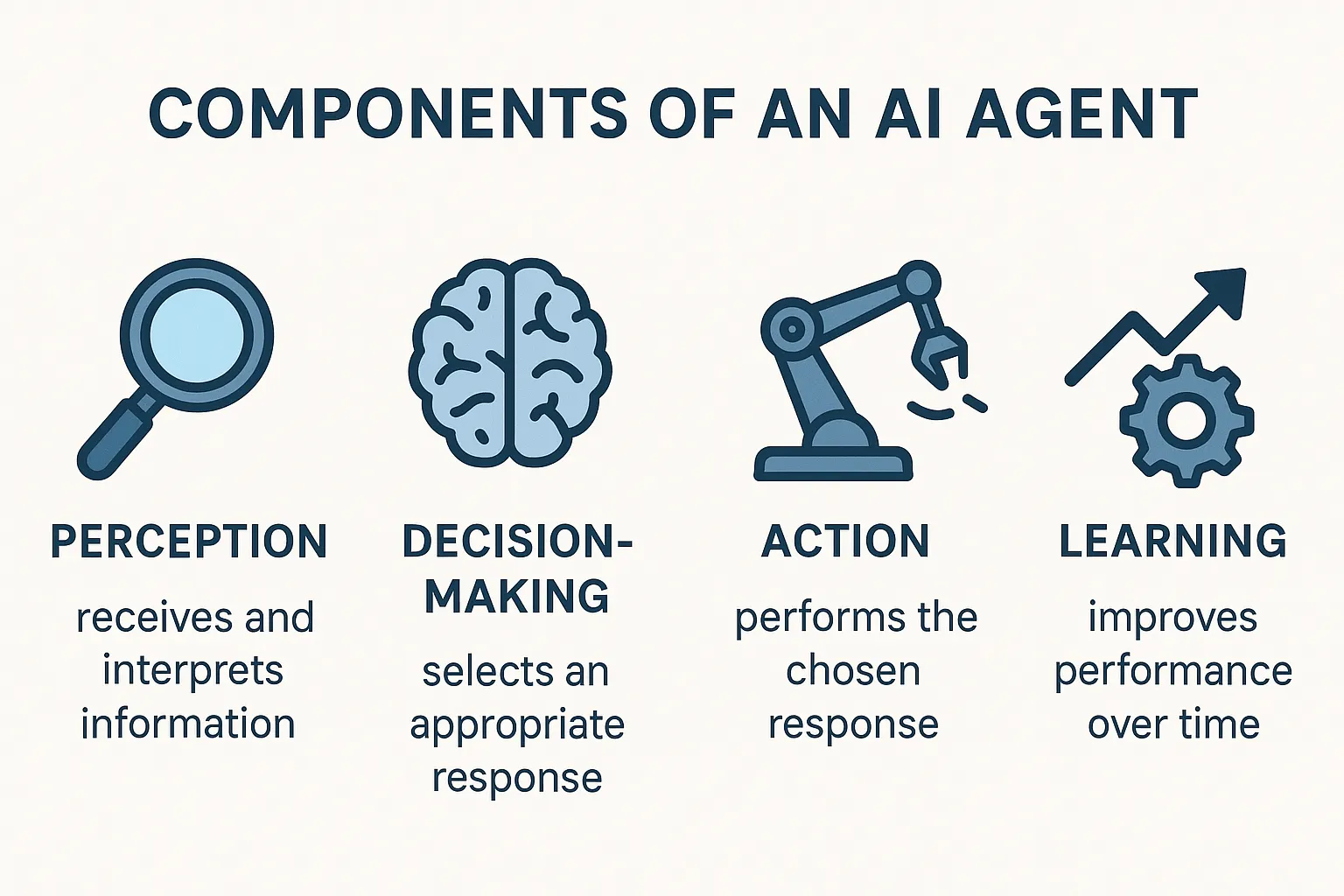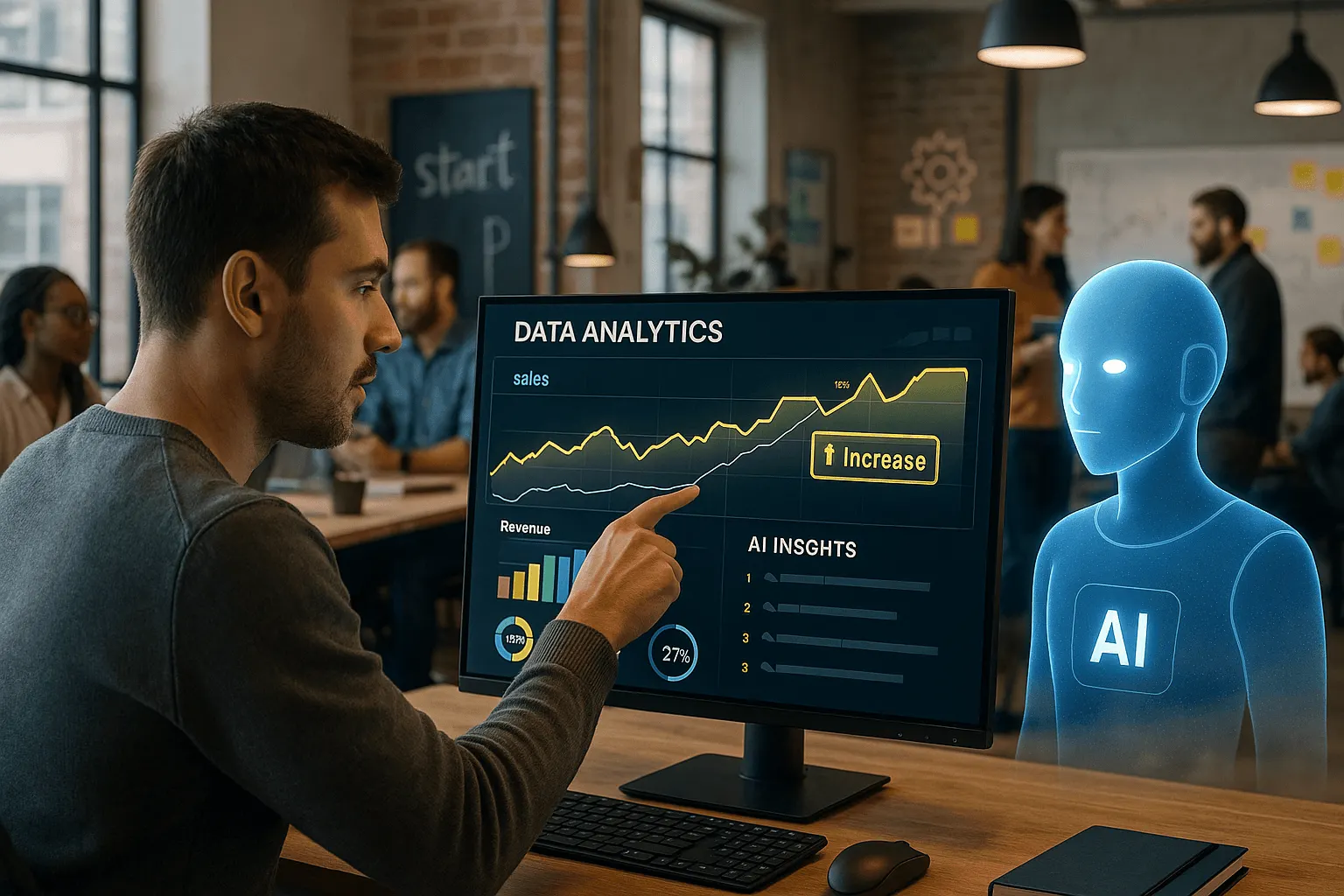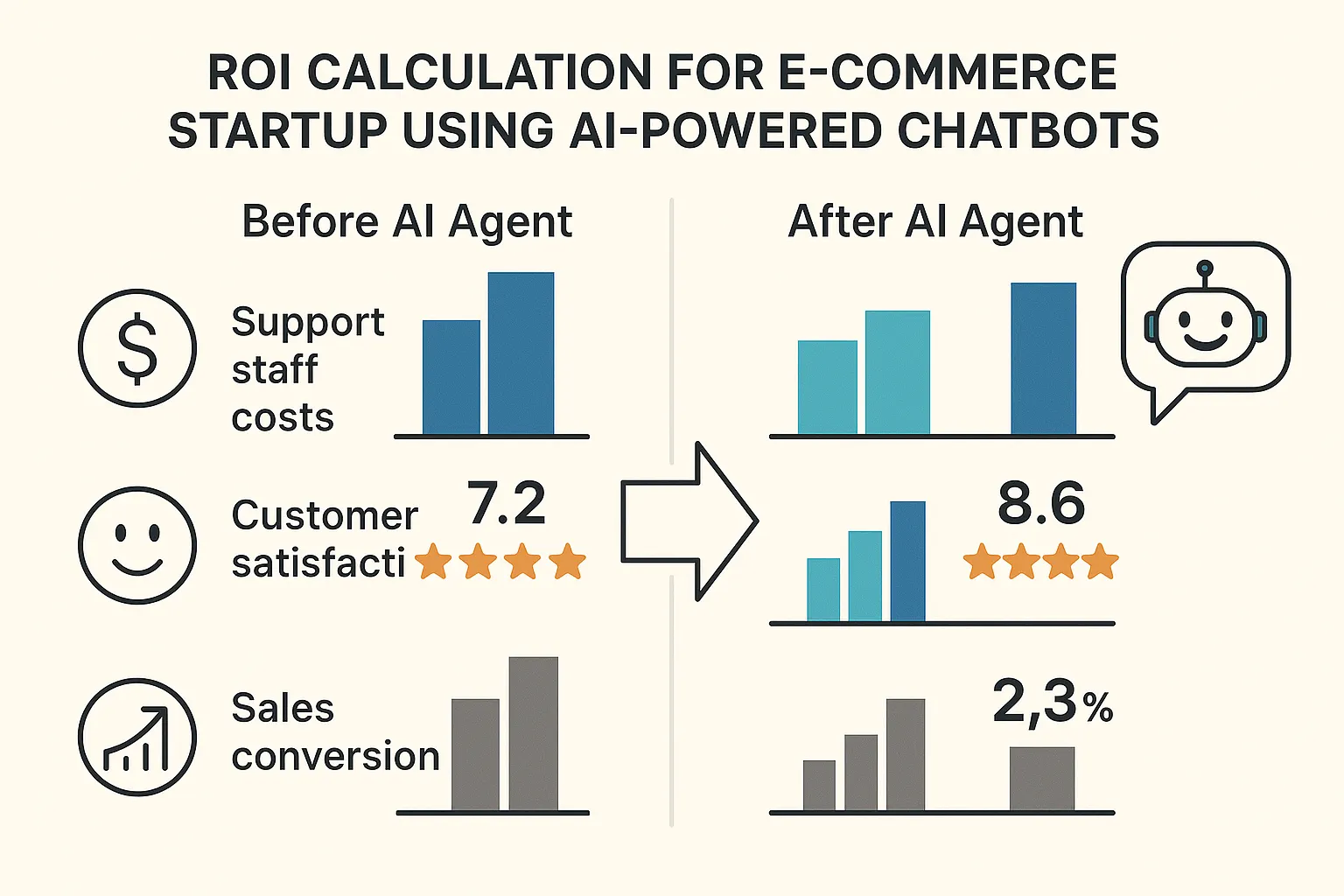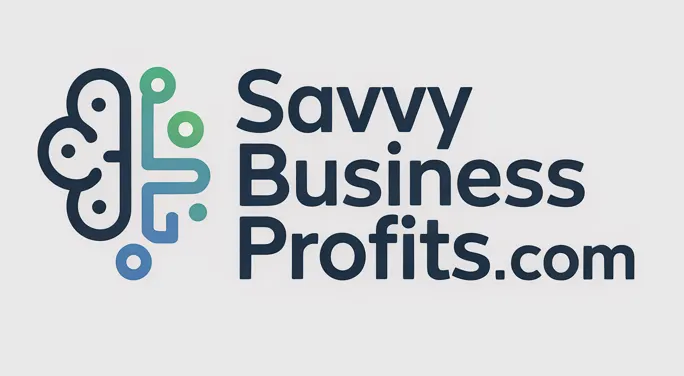From Hype to Hard Savings: Real Businesses Reveal Their AI Agent ROI!

Imagine a world where tedious tasks vanish, customer service is lightning fast, and your team focuses on what truly matters: growing your business. That's the promise of AI agents, and it's no longer just a futuristic fantasy. Businesses, especially startups, are discovering the tangible return on investment (ROI) these intelligent assistants offer. But is it all hype, or are there genuine, hard savings to be found?
This article dives deep into the real-world experiences of businesses leveraging AI agents. We'll move beyond the buzzwords and explore concrete AI agent ROI case studies for startups and established companies. We'll uncover practical examples of AI agents cutting costs and boosting efficiency, providing a clear picture of what's possible for your own business.
Key Takeaways:
- AI agents are moving beyond the hype, delivering real and measurable ROI for businesses of all sizes.
- Startups and established companies are successfully using AI agents to automate tasks, improve customer service, and reduce operational costs.
- Real-world AI agent ROI case studies demonstrate significant cost savings in areas like customer support, marketing, and data analysis.
- Understanding the specific applications and benefits of AI agents is crucial for maximizing your investment and achieving a positive ROI.
- The future is here! AI agents are not just a technological advancement, but a strategic imperative for businesses looking to stay competitive. 🚀
What Exactly Is an AI Agent, Anyway? 🤔
Before we dive into the numbers, let's define what we're talking about. An AI agent is essentially a computer program that can perceive its environment, make decisions, and take actions to achieve specific goals. Think of it as a virtual assistant that can learn and adapt over time.
Unlike traditional software, AI agents are intelligent and can handle complex tasks without explicit programming for every scenario. They use techniques like machine learning, natural language processing (NLP), and computer vision to understand and respond to their environment.
Here's a simple breakdown:
- Perception: Gathers information from its surroundings (e.g., customer inquiries, website data).
- Decision-Making: Analyzes the information and determines the best course of action.
- Action: Executes the chosen action (e.g., responds to a customer, generates a report).
- Learning: Improves its performance over time based on experience.

Why Should Startups Care About AI Agents? 💰
Startups often operate with limited resources, making efficiency crucial for survival and growth. AI agents offer a powerful solution for automating tasks, freeing up human employees to focus on more strategic initiatives. Here’s why they're particularly relevant to startups:
- Reduced Operational Costs: Automating repetitive tasks like data entry, scheduling, and customer support can significantly reduce labor costs.
- Improved Customer Service: AI-powered chatbots can provide 24/7 customer support, answering common questions and resolving issues quickly.
- Increased Efficiency: AI agents can streamline workflows and automate processes, leading to increased productivity and faster turnaround times.
- Data-Driven Insights: AI agents can analyze vast amounts of data to identify trends, patterns, and opportunities for improvement.
- Scalability: AI agents can easily scale to meet growing demands, allowing startups to handle increased workloads without hiring additional staff.
"AI agents are no longer a luxury; they're a necessity for startups looking to compete in today's fast-paced business environment."
Real-World AI Agent ROI Case Studies for Startups
Let's move on to the good stuff: tangible examples of AI agents delivering ROI for startups.
Case Study 1: Streamlining Customer Support for an E-commerce Startup 🛍️
Company: "TrendyThreads," an online clothing retailer.
Challenge: TrendyThreads was struggling to keep up with the increasing volume of customer inquiries. Their small customer support team was overwhelmed, leading to long response times and frustrated customers.
Solution: Implemented an AI-powered chatbot to handle common customer inquiries, such as order tracking, returns, and product information.
Results:
- Reduced Customer Support Costs by 40%: The chatbot handled 60% of customer inquiries, freeing up the human support team to focus on more complex issues.
- Improved Customer Satisfaction: Response times were reduced from hours to seconds, leading to a significant increase in customer satisfaction scores.
- Increased Sales Conversion: The chatbot proactively engaged with website visitors, providing personalized product recommendations and assisting with the checkout process, resulting in a 15% increase in sales conversion.
ROI Calculation:
Metric Before AI Agent After AI Agent Change Support Staff Costs $50,000/month $30,000/month -$20,000 Customer Satisfaction Score 7/10 9/10 +2 Sales Conversion Rate 2% 2.3% +0.3% Key Takeaway: AI-powered chatbots can dramatically improve customer service while reducing operational costs, leading to a significant ROI for e-commerce startups.
Case Study 2: Automating Marketing Campaigns for a SaaS Startup 🚀

Company: "DataWise," a software-as-a-service (SaaS) company offering data analytics tools.
Challenge: DataWise was struggling to personalize their marketing campaigns and reach the right audience. Their marketing team was spending too much time on manual tasks, such as segmenting email lists and creating personalized content.
Solution: Implemented an AI-powered marketing automation platform to personalize email campaigns, target specific customer segments, and optimize ad spend.
Results:
- Increased Lead Generation by 30%: The AI-powered platform identified high-potential leads and personalized email campaigns, resulting in a significant increase in lead generation.
- Improved Email Open Rates by 20%: Personalized email subject lines and content led to higher open rates and click-through rates.
- Reduced Marketing Costs by 15%: The platform automated many manual marketing tasks, freeing up the marketing team to focus on more strategic initiatives.
ROI Calculation:
Metric Before AI Agent After AI Agent Change Leads Generated 100/month 130/month +30 Email Open Rate 10% 12% +2% Marketing Spend $10,000/month $8,500/month -$1,500 Key Takeaway: AI-powered marketing automation platforms can help SaaS startups generate more leads, improve engagement, and reduce marketing costs.
Case Study 3: Enhancing Data Analysis for a Fintech Startup 📊
Company: "FinTech Solutions," a startup providing financial analysis and investment advice.
Challenge: FinTech Solutions needed to analyze vast amounts of financial data quickly and accurately to provide timely investment recommendations to their clients. Their existing data analysis processes were slow and inefficient.
Solution: Integrated an AI agent capable of analyzing financial datasets, identifying patterns, and generating reports.
Results:
- Reduced Data Analysis Time by 60%: The AI agent automated data cleaning, processing, and analysis, significantly reducing the time required to generate reports.
- Improved Accuracy of Investment Recommendations: The AI agent identified patterns and trends that human analysts may have missed, leading to more accurate investment recommendations.
- Increased Client Retention: Providing more accurate and timely investment advice resulted in increased client satisfaction and retention.
ROI Calculation:
Metric Before AI Agent After AI Agent Change Data Analysis Time 10 hours/report 4 hours/report -6 hours Report Accuracy 85% 95% +10% Client Retention Rate 90% 95% +5% Key Takeaway: AI agents can significantly improve the speed and accuracy of data analysis, leading to better decision-making and increased client satisfaction for fintech startups.
Real-World Examples of AI Agents Cutting Costs

Beyond the case studies, here are more specific examples of how AI agents are helping businesses cut costs:
- Automated Invoice Processing: AI agents can automatically extract information from invoices, eliminating the need for manual data entry.
- Predictive Maintenance: AI agents can analyze data from sensors to predict equipment failures, allowing businesses to schedule maintenance proactively and avoid costly downtime.
- Fraud Detection: AI agents can identify fraudulent transactions in real-time, preventing financial losses.
- Supply Chain Optimization: AI agents can optimize supply chain logistics, reducing transportation costs and improving delivery times.
Common AI Agent Applications and their ROI
Here's a table summarizing common AI agent applications and their potential ROI:
With so many AI agent solutions available, choosing the right one for your business can be challenging. Here are some key factors to consider:
- Your Specific Needs: What are the specific tasks you want to automate or improve?
- Your Budget: How much are you willing to invest in an AI agent solution?
- The Vendor's Reputation: Does the vendor have a proven track record of success?
- Integration Capabilities: Can the AI agent easily integrate with your existing systems?
- Ease of Use: Is the AI agent easy to use and manage?
The Future is Now: Embrace the Power of AI Agents
AI agents are no longer a futuristic fantasy; they are a real and tangible solution for businesses looking to improve efficiency, reduce costs, and stay competitive. By understanding the potential ROI of AI agents and choosing the right solution for your needs, you can unlock significant benefits for your business. The real-world AI agent ROI case studies for startups speak for themselves. It's time to move beyond the hype and embrace the power of AI agents. 🚀 ```
